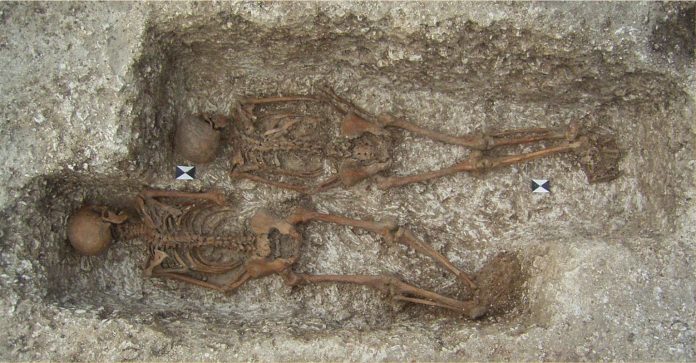The WA sites include Alington Avenue, Greyhound Yard, Dorchester By-Pass, and Dorchester Hospital, the skeletal remains from some of which were analysed by Jacqueline McKinley (WA Senior Osteoarchaeologist).
More recently Kirsten Egging Dinwiddy (WA Osteoarchaeologist) examined the human bone from Little Keep and Poundbury Farm – both used in the study. The Little Keep cemetery population included probable veterans and a large proportion of so-called ‘deviant’ burials (prone, decapitated). At Poundbury Farm Roman burials (including one made in a stone coffin) were found in association with a sequence of large field enclosures and a rural settlement.
Dr Redfern and colleagues found that, in Roman Dorset, urban dwellers were more likely to reach old age than their rural counterparts. However, childhood mortality and conditions such as rickets (vitamin D deficiency) and tuberculosis were higher in those buried in the town cemeteries. Rural inhabitants also displayed better oral health than those from the town which probably reflects differences in diet and access to more expensive, but potentially more damaging foods.
The article was the basis of further articles in the New Scientist, Archaeology Magazine (USA) and Daily Mail (Online).
by Kirsten Egging Dinwiddy, Osteoarchaeologist
Source: Wessex Archaeology

